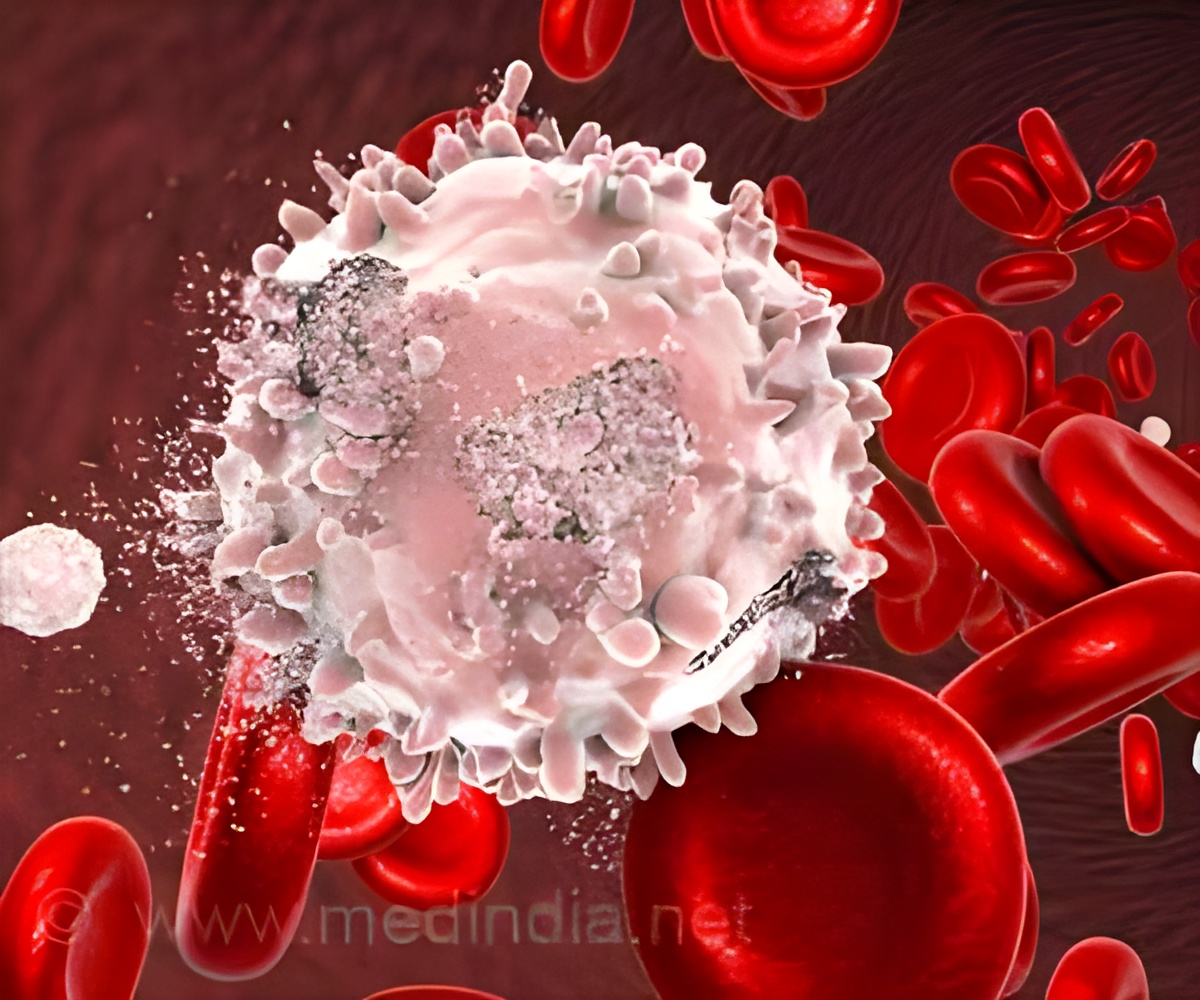Transcription factor BCL6, the protein that promotes tumor formation and drug resistance is the new target for the treatment of mixed lineage leukemia-rearranged B cell acute lymphoblastic leukemia.

‘New combination treatment containing BCL6 blockers with ABT-199 could benefit infants and newborns with deadly leukemia who carry an MLL-rearrangement.’
Read More..




"Our proof-of-concept animal experiments revealed a promising combination targeted therapy that may one day provide lifesaving treatment to babies, young children, teenagers and adults who do not have many options currently," said Markus Müschen, M.D., Ph.D., chair of the Department of Systems Biology at City of Hope and corresponding author of the new study. "The next step is to test our theory in clinical trials." Read More..
About 10% of B-ALL involve abnormal separation and then relocation of chromosome parts in the MLL gene on chromosome 11.
"Treatment options for infants with leukemia are limited, and patients with MLL-rearranged leukemia are in a group with particularly poor outcomes," Müschen said. "The vast majority of infants and newborns with leukemia actually carry an MLL-rearrangement, so we are very pleased that this combination treatment concept may eventually help this group of patients."
The science that led to the discovery
Müschen and his colleagues analyzed gene expression data from a clinical trial that involved 207 pediatric patients who were at high-risk for B-ALL. They noticed higher-than-normal amounts of BCL6 proteins at disease diagnosis, quicker cancer recurrence and reduced overall survival.
Advertisement
The untangling of this data prompted Müschen and his colleagues to conduct experiments involving patient samples and mouse models. They found that most mice with MLL-rearranged B-ALL have abnormal BCL6 protein levels and that BCL6 was rarely found in other kinds of B-ALL.
Advertisement
Through other experiments, the researchers discovered that BCL6 blocks the function of a protein commonly known as BIM (BCL2L11), which is responsible for killing tumors and preventing cancer progression.
They found that the peptide RI-BPI and the small molecule FX1 could unblock this pathway so that BIM could function normally and kill tumors. Further testing showed that RI-BPI and FX1 work synergistically with ABT-199, a small molecule targeted therapy that has been approved by the U.S. Food and Drug Administration to treat chronic lymphocytic leukemia and small lymphocytic lymphoma.
"Our experiments showed that turning off BCL6 in combination with using ABT-199 could be a simple and nontoxic way to overcome drug resistance," Müschen said. "We've proven the method works in mouse models. Now we're passing this knowledge on to scientists worldwide so that our proposed combination targeted therapy can be tested in clinical trials."
Source-Eurekalert











